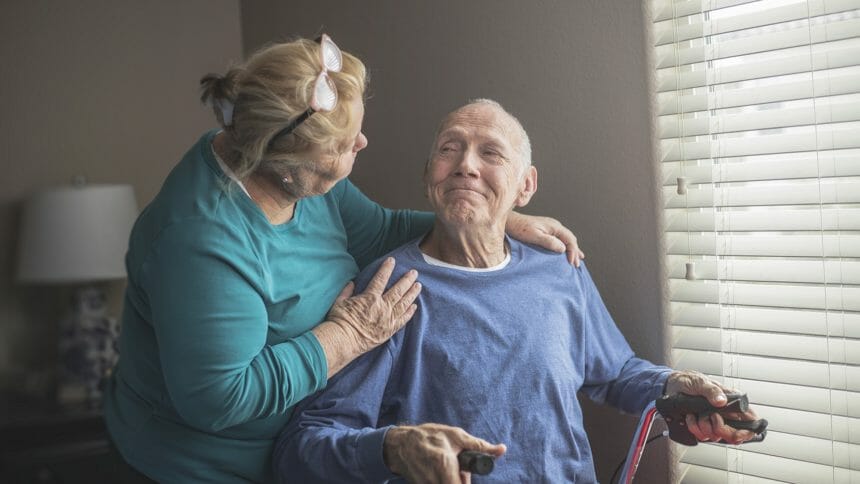
Essential caregivers play a “crucial role” in the care and support of residents, so assisted living communities and other long-term care settings should establish policies and procedures related to them during the time of COVID-19, according to new interim guidance from the Illinois Department of Public Health.
Such policies and procedures include determining whether visits from such caregivers are appropriate or can be considered under compassionate care visitation, according to the guidance, released Wednesday.
The department said it developed the interim guidance in an effort to meet the person-centered care and companionship needs of residents of assisted living communities and other long-term care settings, where access has been limited due to the coronavirus pandemic. It defines essential caregivers as individuals who meet an essential need for a resident by assisting with activities of daily living or positively influencing a resident’s behavior; they are not “general visitors.”
Communities and facilities that allow essential caregivers, however, must screen, test and provide personal protective equipment to them and also must train them in infection control procedures and the appropriate use of PPE, according to the guidance. That training must be documented.
The public health department also encourages communities and facilities that are licensed by the state to permit flexibility in scheduling essential caregiver visits but says that providers may limit the number of essential caregivers in a building at any given time.
Although noting the high risk of COVID-19 transmission in assisted living and skilled nursing facilities, the department said that restricting access to loved ones “creates prolonged physical separation and isolation, which in turn impacts the health and well-being of residents.”




